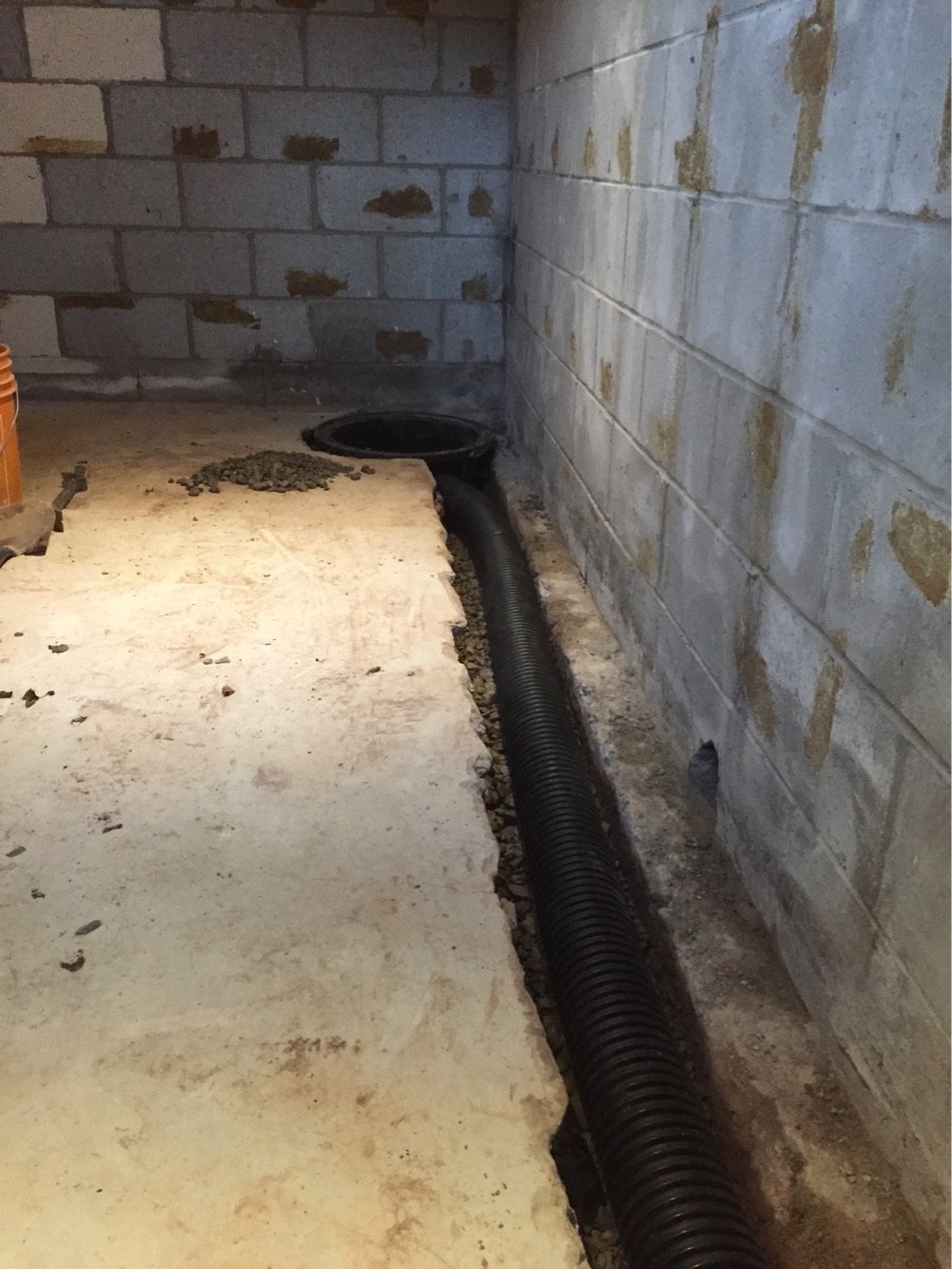Our Services
Wall Cracks
-
When it comes to poured concrete, cracks are not a matter of if but when. Naturally concrete shrinks and expands as it cures, which can cause cracks. Tree roots, water pressure buildup from poor drainage and outside water control can also lead to nonstructural concrete cracks. The more serious cracks are structural cracks from hydrostatic pressure, freeze and thaw cycles in the soil, and wall shifts, footers sinking and settlement all can cause concrete cracks.
-
Surface treatments are never the right option for fixing concrete foundation cracks. The concrete foundation cracks need to be fixed with crack injection. Typically, nonstructural cracks are repaired with crack injection materials. If the crack is nonstructural and merely leaking a polyurethane is used to stop the leak and fill the crack. However, if the poured wall is cracked it may crack again. There is usually something causing the crack and weakening the wall. If the crack is moving it needs to be filled with an epoxy. Epoxy bonds to the concrete inside the cracks and creates a rigid, solid repair. It literally makes the crack bond to the wall again as if the crack was never there. It makes the wall actually stronger than it was before. In addition to epoxy crack injection, some cracks that move (open and close) also need carbon fiber staples. The carbon fiber staples can stop the structural crack from moving.
-
The Concrete Crack Lock is uniquely engineered to permanently stop cracks in concrete. The Concrete Crack Lock permanently locks both sides of the crack together, preventing any further movement. Once set in place, using fast curing epoxy, it welds the crack together maximizing the tensile strength of the carbon fiber
-
Once carbon fiber is bonded to the wall with epoxy, the wall can no longer deflect or move. When applied, it actually makes the wall stronger than it was before. When carbon fiber is installed in cunjuction with a Rhino Injection your foundation crack becomes virtually bulletproof and impervious to water. This method would give you absolute peace of mind and is backed by a lifetime warranty with a money back guarantee!
-
Carbon fiber is the strongest, man-made material in the world. It is incredibly lightweight and will not stretch. It can be woven into fabric sheets or melted down and molded into various shapes to create hundreds of different products. It is a material made up of small fibers of carbon. These small fibers were found to be exceptionally strong individually, but when thousands of these fibers are woven and bonded together, they are stronger than steel. When carbon fiber is installed in conjuction with a Rhino Injection your foundation crack becomes virtually bulletproof and impervious to water. This method would give you absolute peace of mind and is backed by a lifetime warranty with a money back guarantee.
Interior Drain System
Interior Drainage is more cost effective than outside repairs.
There is costly excavation with outside repairs; such as moving walkways, driveways, decks and landscaping costs. Step One before finishing any basement is to ensure it is waterproofed. We install professional sump pumps, pits and battery backups. During our in-home free assessment we can explain this unique system to you, step by step. Our system benefits are numerous.
Exterior Waterproofing
When Exterior Excavation and Waterproofing is The Best Repair Method.
In general, exterior waterproofing is chosen when installing an interior weeping tile system for a concrete block / cinder block wall is not the best waterproofing option for a leaking basement. Homeowners typically choose the exterior excavation and waterproofing approach to repairing their leaking concrete block foundation walls when opening or accessing finished basement walls is undesirable; this is often the case when leaks originate behind expensive finished wet bars, teak panelling, fireplaces, built-in wall units, hot water tanks and furnaces installed close to the foundation walls, etc,.
The exterior condition of the concrete block walls may also justify external waterproofing; this is because the application of waterproof coatings will prevent further deterioration of the concrete blocks; this helps to preserve the integrity of the foundation, ultimately extending it's life.
The application of elastomeric rubber coatings onto exterior foundation walls, a standard process employed by professional waterproofers, prevents foundation walls from coming into contact with ground water. As a result, the concrete blocks cannot absorb water; this is significant when dealing with concrete blocks above the frost line. Concrete blocks that are saturated with water and subsequently exposed to freezing temperatures will deteriorate rapidly as the blocks tend to spall.
Note: Epoxy injection and polyurethane injection cannot be used to waterproof concrete block foundation walls because it is not possible to control the containment of the injected resins, because concrete block foundations are largely hollow.



